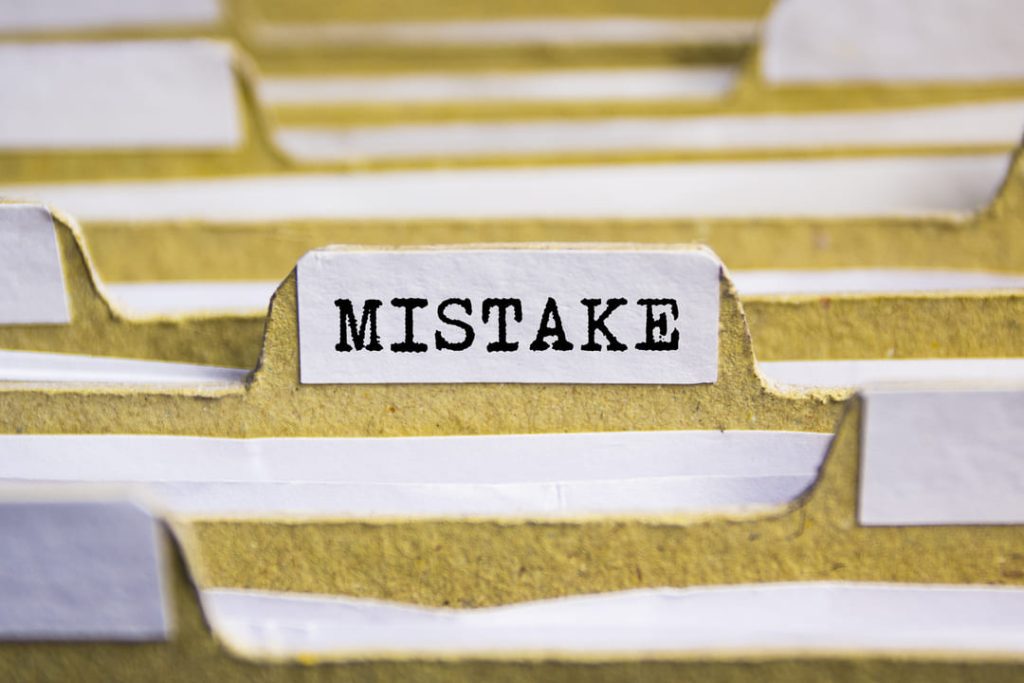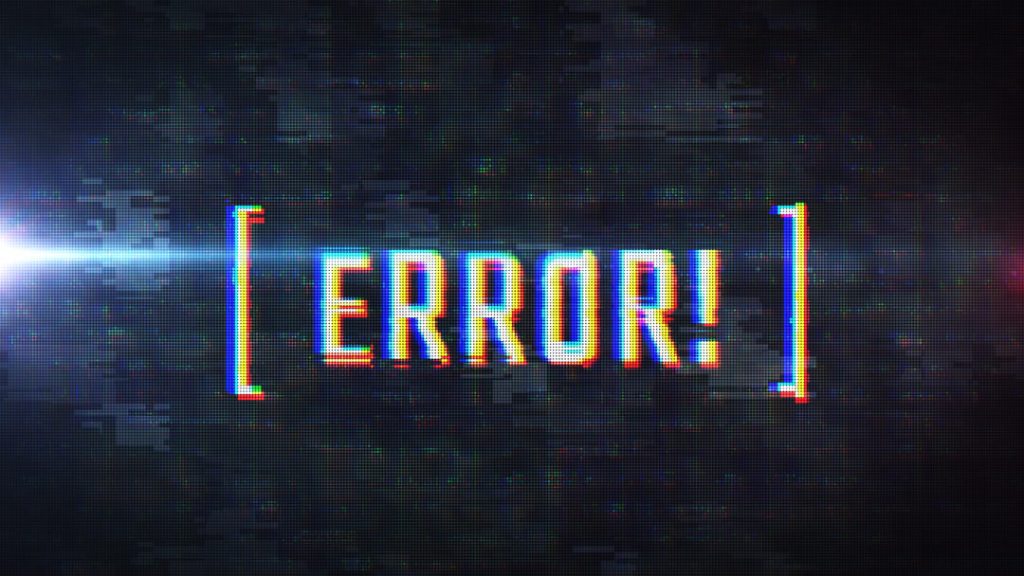Looking for Expert-Level VA Claim Answers?📱Call Us Now! 737-295-2226
With so much riding on a VA claim, it should be handled with meticulous accuracy…at least in a perfect world. But the reality is that the VA is run by humans just like you and me, and a mistake is more common than we realize. After all, they are dealing with a backlog of more than 212,000 VA claims (as of April 29, 2023). With that kind of volume handled by review teams that are often short-staffed, there’s plenty of room for human error.
We frequently see clerical errors (such as getting a date wrong) that diminish a veteran’s benefits. In other cases, the VA may fail to consider all of a veteran’s evidence or fail to apply VA policies correctly. There have even been cases where VA employees deliberately hid and falsified applications.
You may have waited months or even years for a decision on your VA claim. If the rating is less than what you believe you are entitled to, the VA may have made an error.
Here’s a list of the most common errors. Later in the article, we’ll discuss what you can do about these errors.
- Failing to Provide a No-Evidence Notice
- Failing to Provide a Medical Exam
- Performing an Incomplete Medical Examination
- Offering a Poorly Supported Final Decision
- Denying a Claim Because You’re “Too Old to Work Anyway”
- Disqualifying Your Claim Based on Non-Service-Connected Conditions
- Disqualifying Your Claim Because You Are Working
- Denying Mental Health Claims that Lack a Stressor
- Ignoring “Loss of Function”
- Applying Fake Qualifiers
- NEED MORE ASSISTANCE?

You DESERVE a HIGHER VA rating.
Take advantage of a VA Claim Discovery Call with an experienced Team Member. Learn what you’ve been missing so you can FINALLY get the disability rating and compensation you’ve earned for your service.
Failing to Provide a No-Evidence Notice
The appeals claim is fully evidence-based, meaning the more evidence you can provide to support your claim, the better. The problem is it’s not always clear what type of evidence the VA needs to make a decision on your claim. For a long time, people were getting their claims denied for lack of evidence without ever knowing what additional proof they needed to submit.
That’s why the Veterans Claim Assistance Act of 2000 was created. It stated that for all claims filed on or after November 9, 2000, the VA must send you a notice if they need more evidence from you. If your claim is denied for insufficient evidence and you’re not notified of what more is needed, you may have grounds for an appeal.
Failing to Provide a Medical Exam
Did you experience an in-service injury or event that led to a current disability? And can you provide evidence to support this? If so, the VA must provide a medical exam.
You can also get one of these exams on your own through your family doctor, who can provide a diagnosis and also write a nexus letter (or independent medical opinion). This letter should include a statement that links your diagnosis to your service and addresses the degree of likelihood that they are connected (e.g., “It is as least as likely as not that your disability is due to your service.”) But if you have not obtained this information from a private doctor and can present compelling evidence of your service-connected disability, the VA needs to administer the exam.
Performing an Incomplete Medical Examination
Perhaps you were successful in getting a medical exam from the VA, but not all exams are created equal. We have seen cases where the wrong type of doctor performed the exam. For example, maybe you went to the VA seeking an exam for your PTSD, and a family practice doctor performed the exam rather than a psychiatric provider. Or maybe the right doctor examined you and identified a service connection to your PTSD but did not provide a statement communicating this finding.

Offering a Poorly Supported Final Decision
When the VA review board makes a final decision on your disability claim, they must issue a letter explaining that decision. If their explanation is not clear and thorough, they have not upheld their end of the bargain.
In some cases, we have seen that this letter speaks to the evidence against a claim while neglecting the evidence in favor of a claim. Both the positive and negative evidence must be addressed for the final letter to be considered complete.
Denying a Claim Because You’re “Too Old to Work Anyway”
There are a couple of reasons that a veteran may be granted total disability. One is when their combined disabilities add up to a total of a 100% rating. But even if a veteran does not reach this threshold, they could still get total disability if they are given a TDIU rating (total disability individual unemployability). This is granted if a veteran cannot get or keep “substantially gainful employment” due to service-connected injuries or disabilities.
Unfortunately, we’ve seen the VA unfairly deny deserving applicants TDIU ratings. In some cases, they have argued that the veteran is past retirement age. They may think that the veteran is too old to work anyway, so they shouldn’t qualify for TDIU.
But it is not up to the VA to determine if a veteran is too old to work. The question is: if this veteran wanted to work, would they be kept from getting or holding a job because of their service-connected disabilities?
Age is irrelevant to this argument, so if you are denied total disability status because of your age, the VA has stepped out of bounds.
Disqualifying Your Claim Based on Non-Service-Connected Conditions
Perhaps you have a non-service-connected back injury that keeps you from working. But you also have crippling direct-service-connected PTSD.
If the VA said you did not need a TDIU rating because your back pain kept you from working anyway, they would be out of line. Their responsibility is to remove any non-service-connected conditions from the equation and make a determination of your ability to work based on your service-connected disabilities alone.
If those service-connected disabilities render you unable to work, regardless of any other injuries not connected to the military, you are likely eligible for TDIU. This can hold true even if you are already receiving SSDI (Social Security Disability).
Disqualifying Your Claim Because You Are Working
When a government grants you a TDIU rating, it is because you are unable to reasonably work due to your service-connected condition. But this does not mean you cannot work. Perhaps you will find a unique work situation (such as work-from-home) that allows you to continue employment. Or maybe you will find an employer who will accommodate your disability.
You may continue working, even with a TDIU rating, as long as two conditions are met:
- You must be “marginally employed,” meaning that you do not earn enough from your job to exceed the amount established by the U.S. Department of Commerce, U.S. Census Bureau as the poverty threshold for one person.
The recent (2022) U.S. Census Bureau Poverty Threshold is:
- Under 65 years…… $15,225
- 65 years and over…… $14,036
- You must work in a “protected environment,” meaning that your employer has made accommodations for your disability.

Denying Mental Health Claims that Lack a Stressor
While all VA disability claims must be connected to your military service, they do not require you to show a specific “stressor,” except in the case of PTSD. A stressor is a specific event or injury that occurred during your service that caused your condition. If you are filing a claim for a mental health condition other than PTSD, the VA should not deny you an increased rating because you did not indicate a specific stressor.
Ignoring “Loss of Function”
Depending on your injury, the VA may determine your disability rating based on range of motion. For example, if you have a service-connected knee injury, a doctor will measure your ability to bend your knee as compared to a max flexion point of 140°.
But while you may be able to move your knee to, say, 75°, this doesn’t mean that your knee is functioning well up to this point. It’s not just the point at which your knee joint freezes that matters; it’s the range leading up to that point where your knee struggles to move well or rotate well enough to keep you moving around comfortably.
This “loss of function” should be considered alongside the loss of mobility. Can you technically walk with your knee injury? Maybe, but the knee movement may be so labored and painful that it’s not “functional.” If the VA is only considering loss of mobility and not loss of function, an appeal may be the right decision for you.
Applying Fake Qualifiers
On occasion, the VA wrongly limits a disability rating based on non-existent qualifiers. These qualifiers are nowhere in the VA rules, and they can damage your case unfairly.
One of these fake qualifiers relates to mental health. Mental health ratings can be tricky because the VA is taking a broad range of conditions with all kinds of different symptoms and trying to quantify them according to one scale.
To help with this process, the military adds a number of qualifiers to determine how serious a mental health condition is. For example, obsessive rituals are a symptom of PTSD, and if you can prove that they are “interfering with your routine activities,” you may be eligible for up to a 70% VA disability rating.
The problem occurs when the VA adds qualifiers that simply aren’t there in the VA’s rating code. A common one relates to suicide. Like the obsessive rituals described above, suicidal ideation can also qualify a veteran for a 70% rating.
But we have seen the VA deny claims of suicidal ideation by saying that the veterans never acted on their suicidal thoughts. Nowhere in the VA code does it say that a person needs to act on their suicidal ideas in order to qualify for 70% disability. This is a fabricated qualifier.
The VA’s policies cover a lot of different disabilities and define many different thresholds within those disabilities. On top of that, it’s an evolving document, so there are a lot of changes and updates to keep track of. This leaves the door open for errors, so it’s important that you read about the different qualifiers. That way, you’ll be able to spot the fake ones.

I think the VA Made a Mistake. Now What?
There are a couple of routes you could go if you suspect a VA mistake. First, you could file a CUE claim. Second, you could file a VA claim appeal.
A CUE claim can be filed when:
1. The adjudicator overlooked evidence that was definitely included as part of the claim, or they incorrectly applied the regulations/legal standards in effect at the time.
2. If the error had not been made, the outcome of the claim would definitely have been different.
3. The error was made in the evidence and regulations in play at that time.
A VA claim appeal can be filed If you disagree with a VA decision
If you are eligible to appeal, filing a higher-level review appeal is usually the best route, especially if your decision is still at the one-year mark. If you have new evidence to support your case, a supplemental appeal may be the best choice. Contact VA Claims Insider for more information about how to appeal a VA claim.
RELATED: 3 Options to Consider if Your VA Claim is Denied

NEED MORE ASSISTANCE?
Most veterans are underrated for their disabilities and, therefore, not getting their due compensation. At VA Claims Insider, we educate and support you to understand and take control of the claims process, so you can get the rating and compensation you’re owed by law.
Our process takes the guesswork out of filing a VA disability claim and supports you every step of the way in building a fully-developed claim (FDC)—so you can increase your rating FAST!
If you’ve filed your VA disability claim and have been denied or have received a low rating—or you’re unsure how to get started—reach out to us! Take advantage of a FREE VA Claim Discovery Call. Learn what you’ve been missing—so you can FINALLY get the disability rating and compensation YOU DESERVE!




